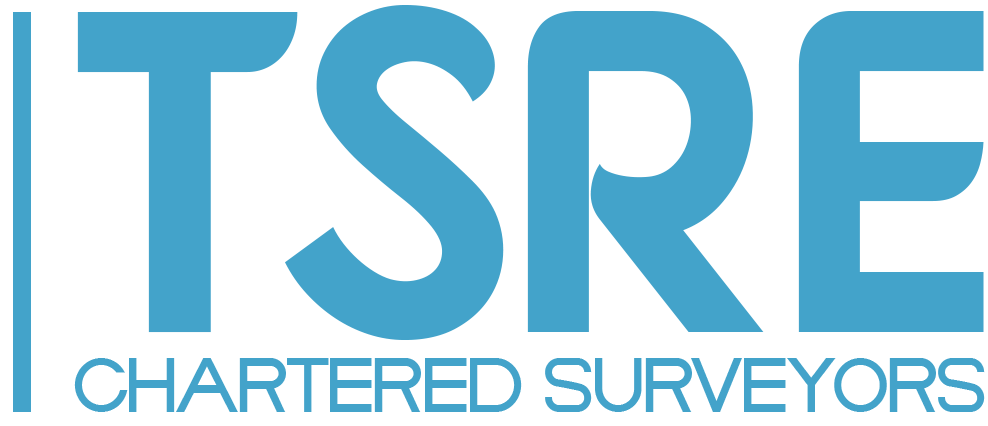Housing Land
At TSRE, we work with landowners, housebuilders, and planning promotion companies to bring residential development sites forward for development.
We create value in sites by preparing them for sale before disposal to a house builder.
We identify new opportunities for housebuilders and planning promotion companies, and we create partnerships with landowners.
We create value in sites by preparing them for sale before disposal to a house builder.
We identify new opportunities for housebuilders and planning promotion companies, and we create partnerships with landowners.
Landowners
Site Disposals
We work with landowners to achieve the best sale price with optimum timing. For instance, we can act as the selling agent for a site ready to take to the market, although we also add value in preparing land for development through site assembly, overcoming constraints, and securing planning consent.
For example, we’ll prepare technical investigations, information, and design solutions that a purchaser will need to pay the best price and secure a planning approval on the best terms.
Planning Promotion
Large sites often need deep pockets, so we work with landowners to appoint a development partner. In such cases, a planning promotion partner will take on the cost and risk of the project.
We identify and select a suitable promoter and negotiate terms. We then go on to represent the landowner’s interests through planning, site preparation, marketing, disposal to a housebuilder, and beyond.
Consequently, the process is straightforward for landowners as a Promoter takes the risk, applies their skills and funds whilst TSRE manages the relationship.
Of course, landowners need to make informed decisions; therefore, we report and make recommendations, ensuring that the best value is secured.
Option Agreements
Housebuilders and promoters of smaller sites will often use an option to secure a site. In that case, we negotiate the terms of an option agreement, including a mechanism to agree on the option price.
We also act for both landowners and purchasers in agreeing on the option price once the option is exercised.
Selecting the best route to market
If your site has potential for development, then get in touch. We can help select the best route to market for you and work with you to make your project a success. In the meantime, see our FAQs below.
House Builders and Promoters
We like nothing more than getting out there and knocking on doors to find your next project whether that’s a site for half a dozen units, a few hundred, or more.
We build strong relationships with landowners and complete all of the legwork needed to secure the site.
With our core skills in development, we can also complete a development delivery role to supplement your development team.
Strategic Land Development Delivery
With core skills in development delivery, our talents lie in preparing sites for the construction phase by working with promoter and landowner teams to create an opportunity and turn it into a development site.
We work with both public and private sectors to create value and achieve regeneration and community objectives.
As part of the client development team, we will complete individual workflows or coordinate teams throughout the project, including financial appraisal, site assembly, masterplanning, engineering solutions, planning approval, contractor appointments, marketing and plot disposals.
FAQs for Landowners
We know that it can be confusing to understand the best route to market, so to help clear things up, here are a few questions that we’re often asked by landowners.
What is Planning Promotion?
A planning promotion agreement is a collaborative arrangement between a landowner and a housing land specialist.
A Promoter won’t build the houses but will do everything needed to secure planning approval and then arrange a sale to the housebuilder making the best offer.
A Promoter will apply its skills and funds at no risk to the landowner to secure a planning consent as soon as possible. Its skills lie in preparing a deliverable development appropriate for the local market and best suited to the site characteristics. The proposals must also generate the most revenue relative to costs.
Once planning approval is secured and the Promoter can mitigate risks to a purchaser, it will invite bids for the site from housebuilders and work with them to maximise the sale price.
Following a sale, the Promoter will receive its return which comprises a share of the sale price. How much that share is will depend on the circumstances, and of course, TSRE can advise on that.
Promotion agreements, therefore, work well because the landowner and the Promoter have closely aligned interests. With this in mind, landowners can be sure that they will achieve the best price in the shortest possible time.
What’s an Option Agreement?
An Option is an agreement that allows the option holder to buy a site at a time of their choosing.
Consequently, a sale to another party will be subject to that option agreement, which usually prevents a sale to another developer.
Typically an option to purchase land is exercised following the grant of planning permission. The price paid (the Option Price) can be agreed upon at the outset, although frequently it is an agreed proportion of the market value of the land. This is to reflect the risk and investment made by the Option holder in securing planning approval.
The price will then only be agreed upon when the Option is exercised, or it will be determined by a third party if an agreement can’t be reached.
However, the landowner will want as high a price as possible, and the option holder will want as low a price as possible, which often leads to conflicts.
In that case, landowners can find that the option holder has the technical and cost information needed to determine the price. Consequently, it can be necessary for a landowner to incur high costs to investigate technical matters, understand costs and engage a surveyor to agree on the price.
Which is better, Promotion or Option Agreements?
First, it’s important to say that every deal is different and that may be no straightforward answer to this question from the landowner’s point of view.
In both cases, the Promoter or the option holder (let’s call them both the Developer for now) will try to secure planning permission at their own cost and risk, with no liability on the landowner if unsuccessful.
In both cases, these costs will be re-paid to the Developer at the time of the site’s sale.
Typically the cost to the landowner is similar in each approach, as the discount to market value under an option agreement is likely to be comparable to the Promoters share of the sale proceeds.
The main differences lie in the complexity of the agreement, the nature of the parties’ relationship, and (sometimes) timing.
The Agreements
An option agreement can be a reasonably straightforward document, and so it can be put in place relatively quickly and for little cost.
However, a more comprehensive document may better serve both landowner and Developer in the longer term.
A promotion agreement, however, is a complex document that will often take some time to negotiate. Although legal and surveyors costs can be quite high, many Promoters will meet landowners costs on completion of the agreement.
The Relationships
The fundamental difference here is that under a promotion agreement, several housebuilders will bid for a site in competition with each other.
As the Promoter will receive a share of the sale proceeds, it has the same objective as the landowner…to maximise the sale price.
The Promoter will therefore ensure that costs of development will be as low as possible (so that the sale price is maximised) and that the costs of their obligations under the Promotion Agreement are as low as possible. Whilst these costs are reimbursed to the Promoter they will have already been paid to others, and so don’t include any element of profit.
To do this, the Promoter will prepare an efficient site layout, specification for engineering works, off-site works, planning contributions and other costs. Importantly, all of this will be agreed upon with the landowner.
During the marketing stage, the Promoter will also challenge cost assumptions made by bidders in order to maximise the sale price.
In comparison, under an option agreement, the developer won’t typically be required to consult with the landowner regarding its proposals.
The layout, specification, and costs presented in its calculation of the option price will be untested in the marketplace and may not be as efficient as the developer may later be able to achieve. Should the purchaser later implement a more efficient development, then they will create additional profit. Had this been known when agreeing to the option price, it would have increased the landowner’s receipts.
A material detraction from some option agreements is that the option holder will have much cost and design information to hand, but the landowner will not and will often have difficulty challenging these costs unless a professional team is engaged, which can be costly.
Timing
A promoter is motivated to secure planning approval, complete a sale and share the proceeds as soon as possible. The Promoter will market the site to all relevant house builders, and whilst some may not make an offer if, for instance, they have a competing site nearby, there will likely be competition to buy the site.
In comparison, under an option agreement, there is only one party able to buy the site, and, what’s more, they can do that mainly when they choose to.
If that housebuilder has another competing site nearby (for instance), it may choose to delay exercising the option.
What’s a Conditional Contract?
A conditional contract may come in many forms.
Essentially, an exchange of contracts would take place, with completion of the sale taking place only when specified events occur.
For example, a party may agree to buy a plot of land, but only once planning permission has been granted.
In that case, a conditional contract means that the purchaser acquires the site only when/if it can be developed, but that they can make a planning application in the meantime in the knowledge that no other party is able to buy the site.
What is Overage?
Overage, or clawback, is an additional payment made if certain events occur after a sale completes.
For instance, the parties may agree on a sale price based on an approved development layout or specific house prices and infrastructure costs.
An overage payment may be agreed if more valuable planning approval is secured, if houses sell for more than expected, or if development costs are less than expected.
What if there are multiple landowners
Land in multiple ownerships will often be subject to promotion or option agreements with each owner, thereby allowing the wider site to be brought forward for development.
The Promoter or option holder will manage all of the relationships, and the agreements will set out how much of the sale proceeds will be due to each landowner.
Usually, each part of the site makes an equal contribution to the development despite some land possibly appearing to contribute less to value, for instance, land subject to flooding or used for open space, compared to the sites of houses.
However, all land will usually contribute significantly to the development, in the example given, as part of the ecology offer and drainage strategy, which is needed to secure planning approval and so allow homes to be built elsewhere.
It’s usual, where all parts of the combined land contribute equally to the development, that sale receipts will be apportioned to landowners pro-rata the site areas. Of course, there are occasions where this isn’t reasonable, and then the parties may wish to be advised on an appropriate apportionment of the sale price.


We have been very pleased with the performance of TSRE in bringing the sale of our land with planning permission to fruition. Tony Straw was punctilious in keeping us informed at all times, knowledgeable in what needed to be done and helpful at all times.
We would have no hesitation in recommending his services to anyone.
